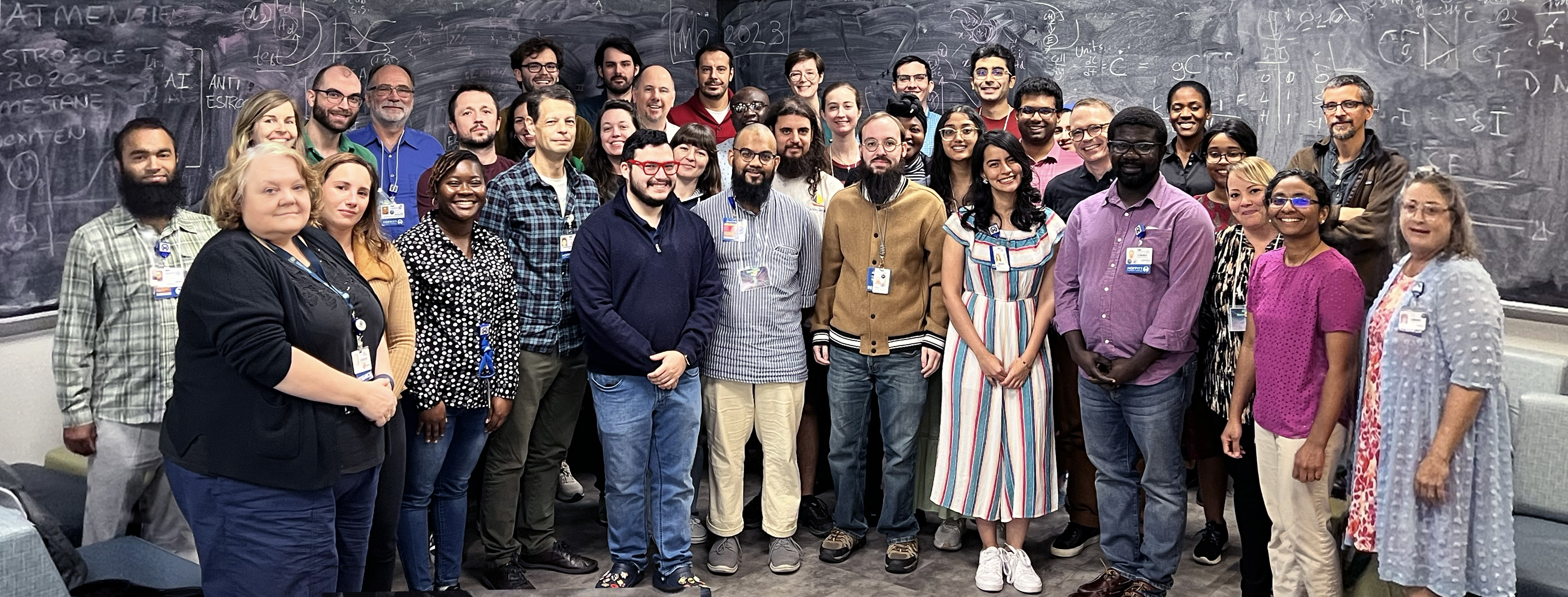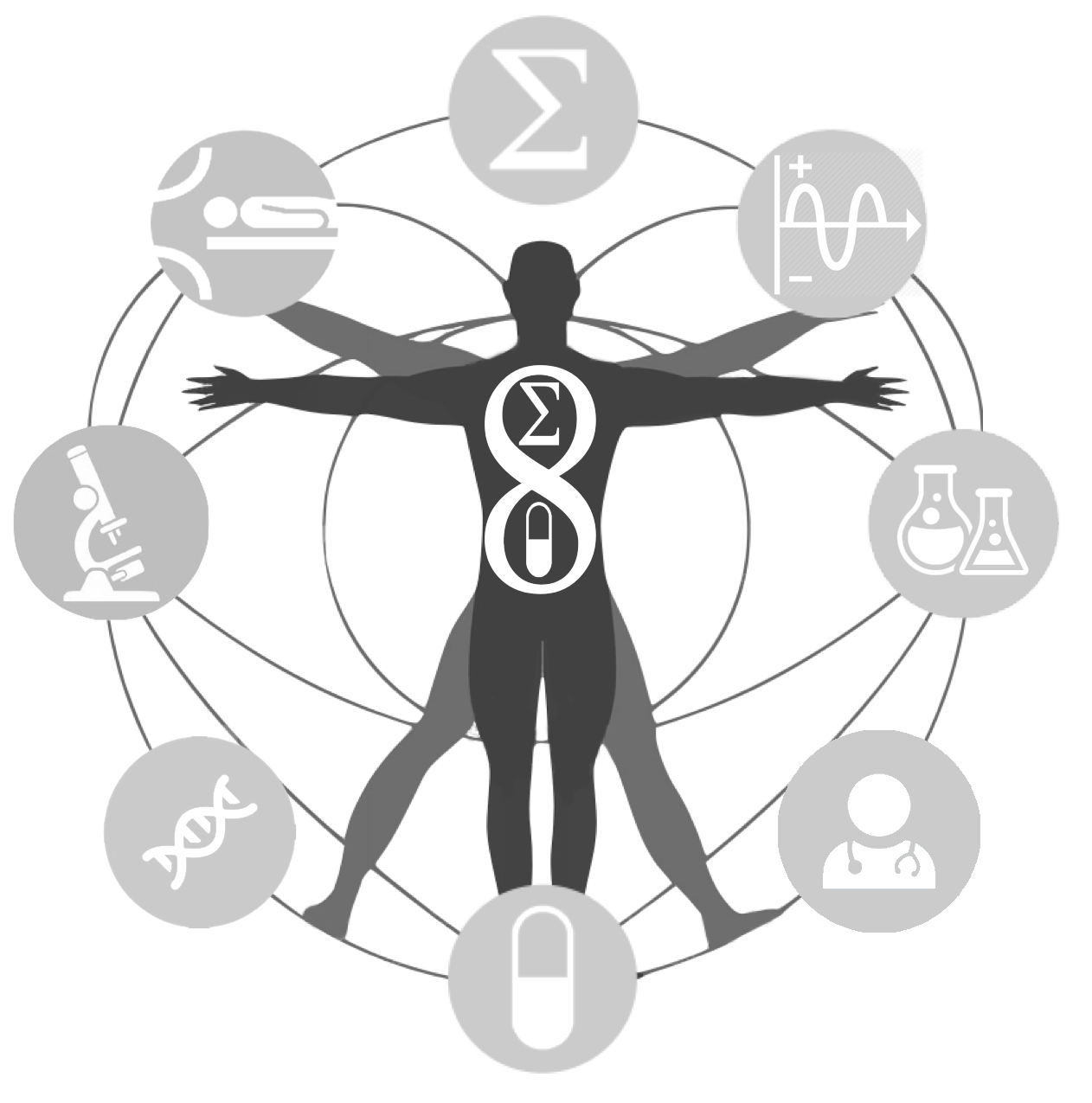About the IMO Workshop

Integrated Mathematical Oncology at Moffitt Cancer Center
The annual Integrated Mathematical Oncology (IMO) workshop is chaired and organized by the IMO Department Chair, Sandy Anderson. Fully supported by the Moffitt Cancer Center and Moffitt’s Physical Sciences Oncology Center. The workshop would not be possible without the dedicated team of scientists from the IMO – all faculty, research scientists, postdocs and students participate every year to make this a truly teams science experience.
Hands-on modeling experience
This workshop is designed to motivate and facilitate a hands-on modeling experience focused on different aspect of cancer progression and treatment each year. The workshop divides participants into a number of teams integrating clinical, experimental and theoretical members to develop and implement a mathematical model focused on the specific theme of the workshop that year. The teams are expected to come up with a model, analyze it, make useful predictions and give a presentation all within 4.5 intense days.
Interdisciplinary science
The primary goals of each team are to:
- Cultivate interdisciplinary collaboration to promote the exchange of ideas and develop novel approaches to understanding the specific theme of the workshop
- Focus on a specific question relevant to this dialogue
- Develop a mathematical/computational model to facilitate answering this question
- Utilize this model in a practical manner
- Produce an integrated coherent presentation.
4.5 days working groups
The workshop format has evolved over the years, based on the feedback we received from each year, and has converged on what you will experience this week. Each team independently will begin with short introductory presentations from the team leaders to motivate each team and give relevant information. We will have 2 updates that bring the teams together on Monday and Thursday. The 1st one is the Question presentation: by the afternoon break today, each team needs to have already agreed upon a question. The 2nd is to have a single specific aims page that serves as part of the pilot grant application and must be sent to me by 4pm on Thursday. These aims will also need to be presented to the greater group during the Thursday afternoon break. These presentations can be done by any member(s) of the team and should be oral only for the question and a 1-2 slides for the specific aims.
$50,000 pilot grant funding
Each year we award the team leaders of the winning team a $50,000 pilot grant. The primary purpose of this grant will be to facilitate model validation and subsequent collaboration. In addition, every active member (as defined by the team leaders) of the winning team will receive a $75 Amazon gift voucher. Judges will be scoring several criteria, including (i) Importance of the question, (ii) Originality of the approach, (iii) Degree of success, (iv) Quality of presentation, (v) Degree of integration. Depending on how close the runner-up team is in score to the winning team we will also award every active member (as defined by the team leaders) of the runner-up team a $25 Amazon gift voucher. After the winning team has been chosen a more formal budget will be requested before the funds can be released. Each of the three winning team leaders will be considered joint PIs with the contact PI being an IMO member.
The Center of Excellence for Evolutionary Therapy
The Center of Excellence for Evolutionary Therapy generously provides a $50,000 pilot award to the runner-up team to conduct the research proposed. The Center of Excellence works to develop and deploy the next generation of truly personalized cancer therapy, through the integration of predictive mathematical models, patient data and evolutionary principles. At Moffitt, staying ahead of cancer means having every resource possible to predict what it will do next. Collecting data is crucial for successful implementation of evolutionary-based therapies. Our Center of Excellence for Evolutionary Therapy combines computational informatics and mathematical modeling, allowing us to deliver the right therapy at the right time. Every new tool that allows our oncologists to analyze tumors with greater precision means we can bring lifesaving therapies to our patients sooner.

